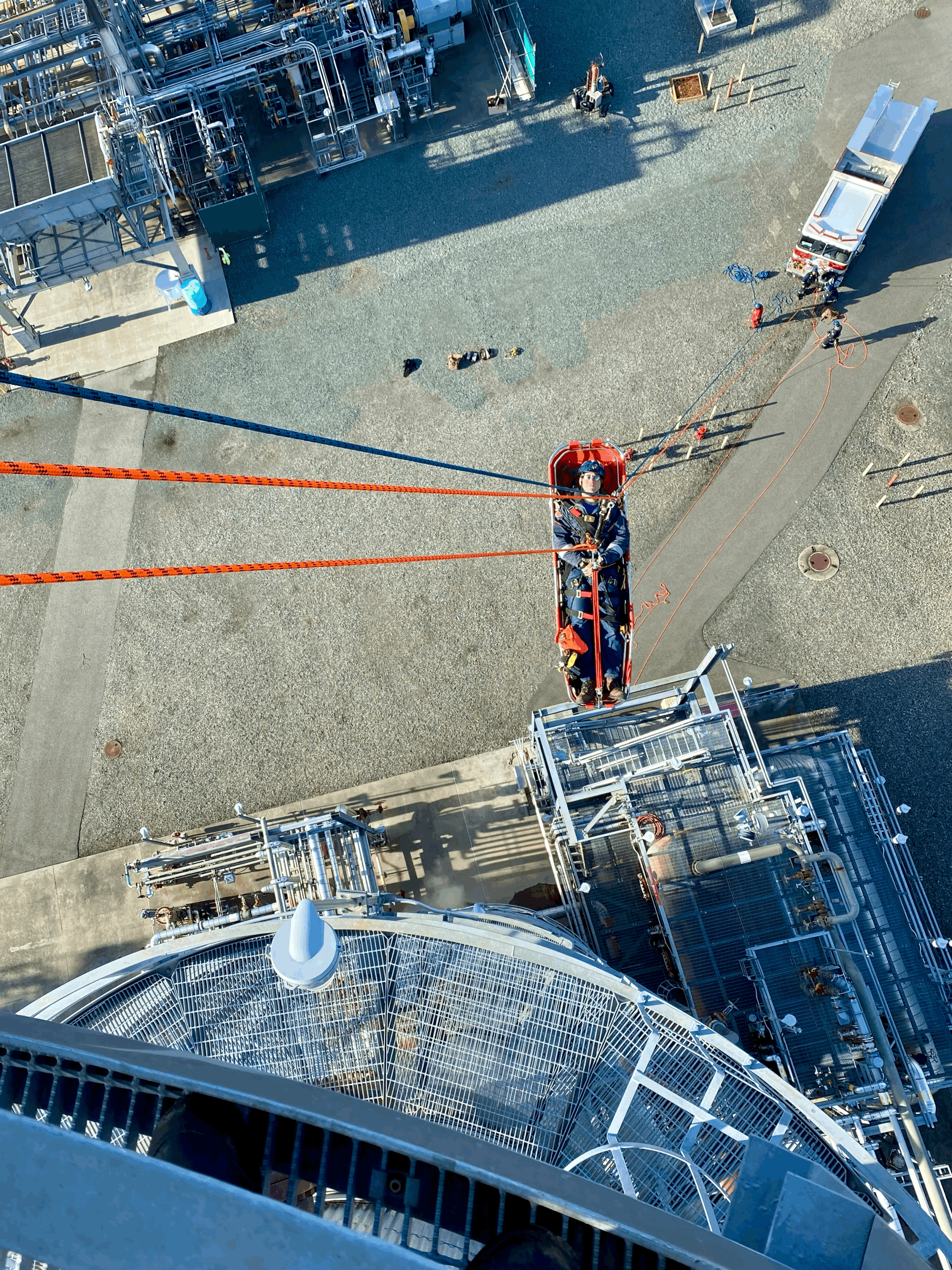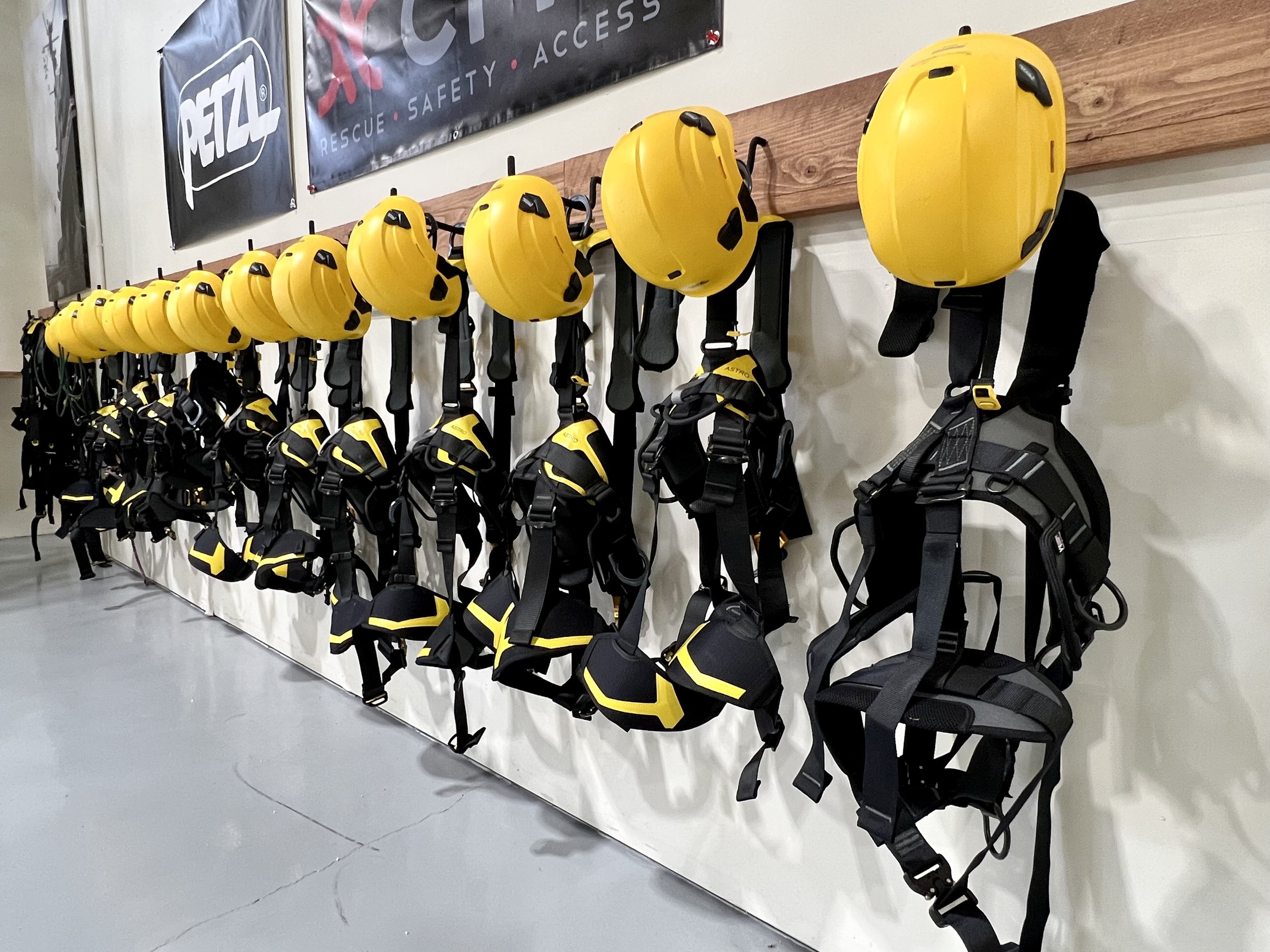
INDUSTRIAL RESCUE TECHNICIAN
National Fire Protection Association (NFPA) is committed to advocating consensus codes and standards and providing research and education for fire and related safety issues. A nonprofit membership organization, the NFPA has over 65,000 members and is staffed by over 5,000 volunteers. Many of these volunteers are part of technical committees. These committees work hard to develop standards which prompt a high level of safety to which all fire service personnel and organizations are held accountable. The applicable standards for technical rescue operations are 1983 (equipment standards), 1670 (agency standards) and 1006 (individual performance standards). Recently, the NFPA 2500 standard consolidates these traditional standards into one. Our rescue courses adhere to the NFPA 1006/2500 Job Performance Requirements in rope and confined space rescue.
The intent of this course is to train participants to the NFPA Technician level for Confined Space and Operations level for Rope Rescue. NFPA Rope Technician is available through additional training and certification.
For agencies pursuing the development of an independent rescue program adherence to the NFPA 1006 and 1670 standards are required and will be closely followed by Life Rescue inc. All independent rescue teams must be supervised by individuals certified to the NFPA “Technician” level in each discipline they respond. At Life Rescue Inc. Technician level courses in Confined Space and Technical Rope Rescue are accompanied by an evaluation to verify competency of the required NFPA Job Performance Requirements (JPR’s). Further description of these NFPA levels follows:
Technician Level
“This level represents the capability of organizations to respond to technical search and rescue incidents, to identity hazards, use equipment, and apply advanced techniques specified in this standard necessary to coordinate, perform, and supervise technical search and rescue incidents” (4.1.2-3)
Operations Level
“This level represents the capability of organizations to respond to technical search and rescue incidents and to identify hazards, use equipment and apply limited techniques specific in this standard to support and participate in technical search and rescue incidents” (4.1.2-2)
Course Overview
This 6 day course was developed based off of our own internal onboarding of new Rescue Technicians. This hybrid class blends the disciplines of NFPA 1006 Rope and Confined Space Rescue into a standalone course offering for those responding within industrial work environments. This is our baseline level of training for ERT teams at refineries, power stations and similar industrial environments. This course establishes Operations Level capability for both Rope and Confined Space Rescue, and is the platform in which new team members begin their careers as first responders in industry.
This course prepares industrial response teams for more than just a simple confined space rescue. What happens if the confined space is elevated? What if getting a casualty out of the space is only half of the job? For confined spaces accessed from the top of columns, towers or penstocks the need exists for a response in how to safely extract a patient out of the space and securely to the ground.
Students will come away with skills to respond to horizontal and vertical confined space entry rescue along with current techniques for lowering and maneuvering the rescue package along vertical and diagonal planes using a two rope system. The crore skills taught include the following:
Use of breathing apparatus and supplied air systems
Communication systems for confined spaces
Assessing and mitigating common confined space hazards
Use of rescue tripods and high directionals
Mechanical advantage and systems for hauling
Application of two-rope sytems
Patient packaging and rescue litters
Lowering from elevated platforms
Rope system offsets and deflections
Duration
6 Days
Times
8:00am - 4:00pm
Each day will begin at 8:00am sharp. Lunch breaks will be provided each day along with complimentary snacks and coffee
Cost
$1600 per student
Cancellation Policy
A full refund will be given to students that cancel prior to 20 days before the course start dates. Within 20 days a 50% discount will be given. Cancellations within 7 days of the class will be charged the full course fee. All registration and course fee’s will be charged on the first day of the course
Location
Life Rescue Inc. 2106 Grant Street Bellingham WA.
Our training facility is located near the heart of downtown Bellingham with numerous options for food and lodging nearby. Many within walking distance of the facility.

2025 Industrial Rescue Technician
$1,600.00
Equipment and Dress Attire
All rescue equipment including harnesses and PPE will be provided during the course. Students are encouraged to dress in athletic attire that allows for unrestricted movement and comfort. Shorts are not recommended. Closed toed shoes are required. Long sleeved shirts are recommended for confined space training.
Outside equipment is not permitted inside of our training facility during courses. Personal helmets may be permissible provided that they have the appropriate ANSI rating and are in good working condition.
Physical Fitness
Rescue training can be physically challenging and requires a good base of fitness and flexibility. We encourage all course participants to verify they are physically capable of wearing a full face respirator and arrive to the course clean shaven. A release of liability form is required prior to the commencement of the first day of class.
Additionally, participants should possess the physical capacity required to help lift, drag and position rescue mannequins weighing 150 pounds.
Course Prerequisites
There are no formal pre-qualifications required prior to taking your Industrial Rescue Technician course. However, students should be comfortable operating inside of confined spaces where conditions can be dark, restrictive and provide limited mobility.


